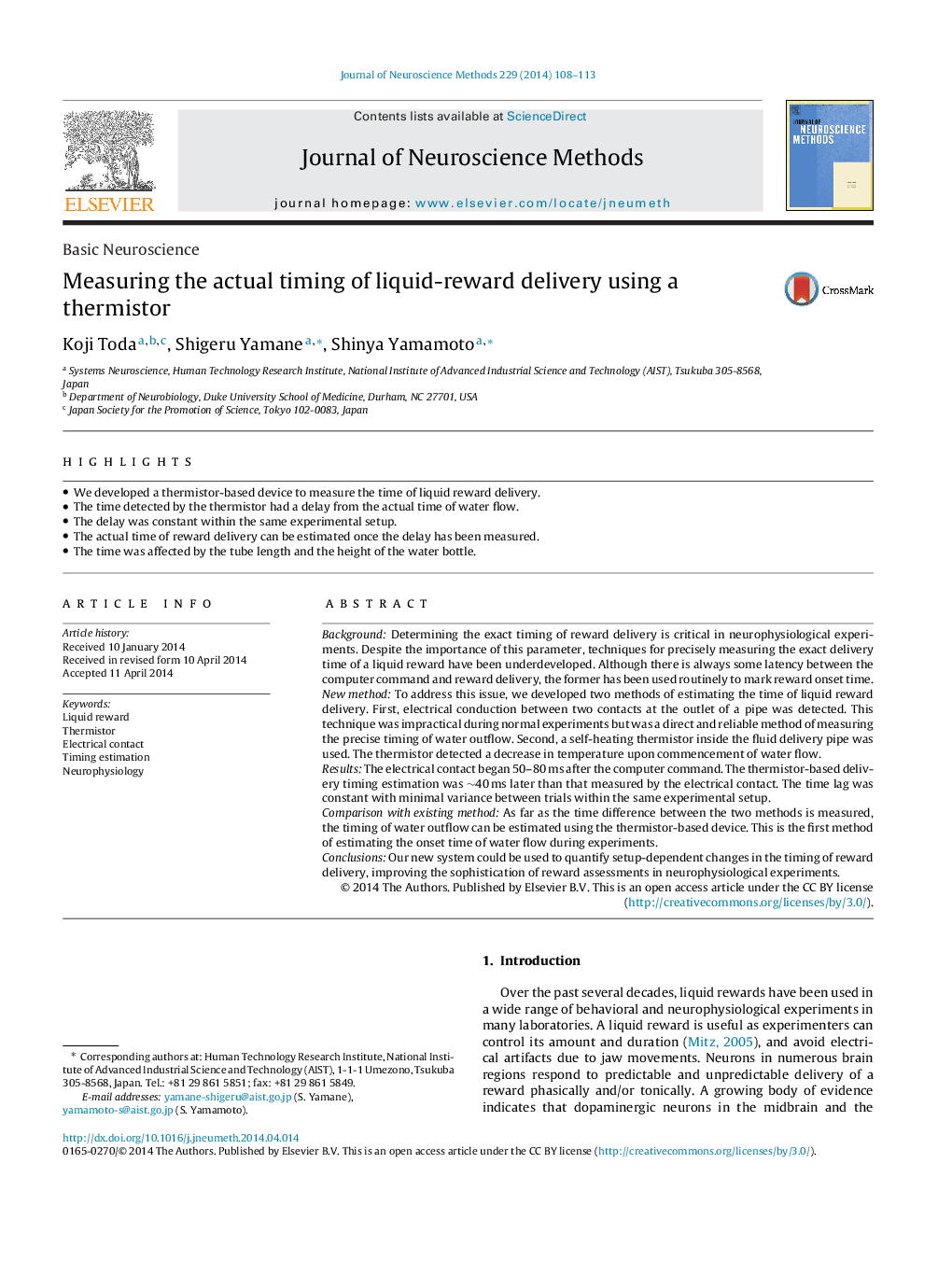| Article ID | Journal | Published Year | Pages | File Type |
|---|---|---|---|---|
| 6268722 | Journal of Neuroscience Methods | 2014 | 6 Pages |
â¢We developed a thermistor-based device to measure the time of liquid reward delivery.â¢The time detected by the thermistor had a delay from the actual time of water flow.â¢The delay was constant within the same experimental setup.â¢The actual time of reward delivery can be estimated once the delay has been measured.â¢The time was affected by the tube length and the height of the water bottle.
BackgroundDetermining the exact timing of reward delivery is critical in neurophysiological experiments. Despite the importance of this parameter, techniques for precisely measuring the exact delivery time of a liquid reward have been underdeveloped. Although there is always some latency between the computer command and reward delivery, the former has been used routinely to mark reward onset time.New methodTo address this issue, we developed two methods of estimating the time of liquid reward delivery. First, electrical conduction between two contacts at the outlet of a pipe was detected. This technique was impractical during normal experiments but was a direct and reliable method of measuring the precise timing of water outflow. Second, a self-heating thermistor inside the fluid delivery pipe was used. The thermistor detected a decrease in temperature upon commencement of water flow.ResultsThe electrical contact began 50-80Â ms after the computer command. The thermistor-based delivery timing estimation was â¼40Â ms later than that measured by the electrical contact. The time lag was constant with minimal variance between trials within the same experimental setup.Comparison with existing methodAs far as the time difference between the two methods is measured, the timing of water outflow can be estimated using the thermistor-based device. This is the first method of estimating the onset time of water flow during experiments.ConclusionsOur new system could be used to quantify setup-dependent changes in the timing of reward delivery, improving the sophistication of reward assessments in neurophysiological experiments.
